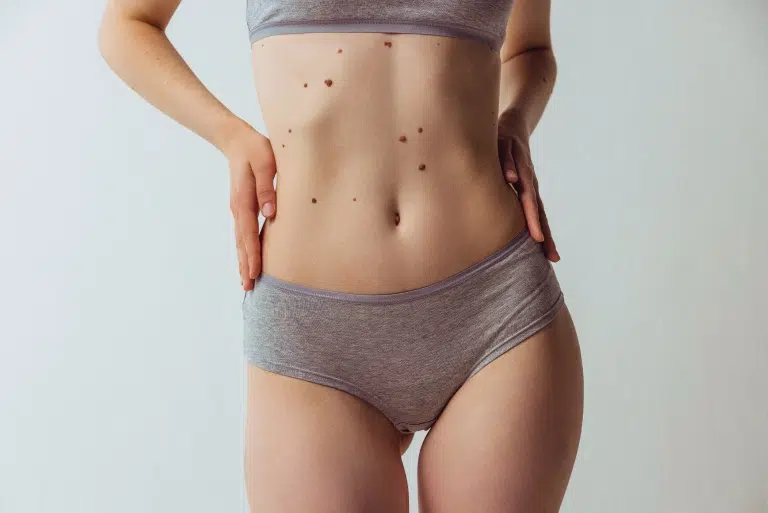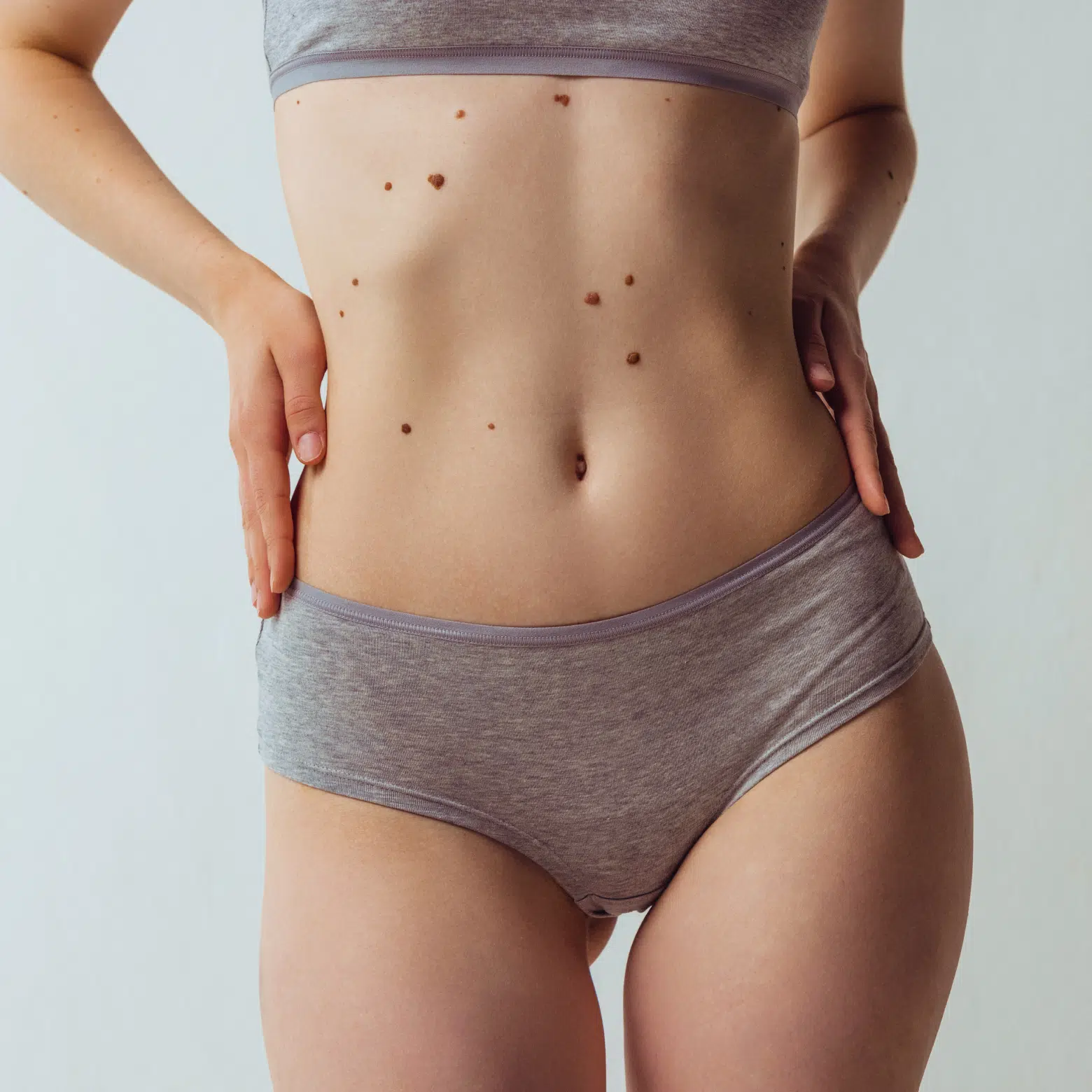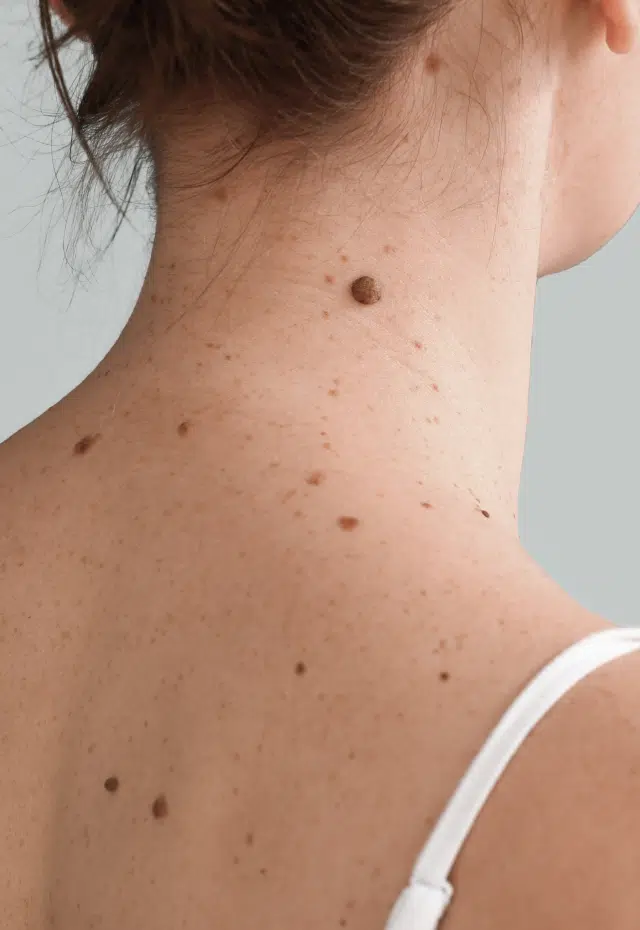Dermatologic surgery
Dermatologic surgery deals with the diagnosis and treatment of medically necessary and cosmetic conditions of the skin. It is concerned with the treatment of both benign and malignant skin lesions. The indications may be cosmectic, therapeutic or reconstructive. Dermatologic surgery is a specialty with a very broad field of interventions and can be performed on a wide range of patients.


Our treatments
Dermatologic surgery treats skin abnormalities while prioritizing both aesthetics and skin health. We offer tailored procedures to restore or enhance the appearance of your skin.
What is dermatologic surgery?
Dermatologic surgeries covers all surgical procedures involving the skin, hair, nails, veins, mucous membranes and adjacent tissues. They procedure allow for:
- Diagnosing a skin disease (inflammatory, autoimmune, skin cancer, infection…)
- Treating a pathology
- Repairing a sequela caused by an accident or disease
This branch of surgery focuses on minimizing the marks that operations might cause. Even when it is not the primary reason for the intervention, the aesthetic result remains a central concern for your surgeon.
Who can benefit from dermatologic surgery?
The purpose of dermatologic surgery is to repair and/or improve the function and cosmetic appearance of skin tissue. It has multiple indications.
Dermatologic surgery concerns patients with benign skin lesions such as cysts, lipomas, keratoses, moles…
Dermatologic surgery plays a predominant role in the management of malignant skin tumors (carcinomas, melanomas, sarcomas, etc.). It is the first-line curative treatment for skin cancers.
It can also be used for cosmetic and reconstructive purposes. It notably allows for the improvement of scars, whether they are of surgical, traumatic origin, or related to a skin diseases such as acne.
Getting prepared for skin surgery
An initial consultation allows your surgeon to examine the lesion and your general state of health. He will determine whether the procedure can be performed under local anesthetic or under sedation. If another method is required, a pre-anesthetic check-up and consultation are prescribed. Blood-thinning drugs (anticoagulants, aspirin, anti-inflammatory drugs, etc.) must be stopped on medical advice before the procedure. Depending on the type of anesthesia, you may be asked to fast (eat and drink nothing) for 6 hours before the procedure. Make-up, jewelry and piercings must be removed before the operation. As before any surgery, a healthy lifestyle is strongly recommended to limit the risk of complications.
Dermatologic surgery treatments at Leman Aesthetic Clinic
Dermatologic surgery treatments take place within the clinic. Practitioners at Leman Aesthetic Clinic can use a variety of methods, including dermabrasion, laser, surgical excision and flap reconstruction. These techniques are complementary and can be adapted according to the pathology. During the initial consultation, the surgeon will assess your specific problem and propose a personalized treatment plan.
Scars
Scar revision surgery will attempt to minimize a scar so that it is less conspicuous and blends in with the surrounding skin tone and texture. In most cases, they can be improved by medical or surgical treatment. Revision surgery is possible, whatever the origin of the scar. Scars fade and are much less noticeable. But they cannot be completely erased.
Skin lesions
Skin lesions encompass a wide range of pathologies of varying degrees of severity. Different techniques are used to treat them. The main objective is to completely remove the lesion, while minimizing cosmetic or functional damage.
There are a number of different surgical treatment options to address scarring that include:
- Laser resurfacing
- Dermabrasion
- Excision
- Z-Plasty or W-Plasty
- Skin graft
- Flap surgery
- Skin expansion
Mohs and “slow Mohs” surgery
Particularly for the face, Mohs and “slow Mohs” surgery may be proposed. This is a micrographic procedure that enables a three-dimensional examination of the excision margins to reduce the risk of recurrence. For Mohs surgery, the histological analysis is carried out the same day, whereas for slow Mohs the result is available after 48 hours or more.

